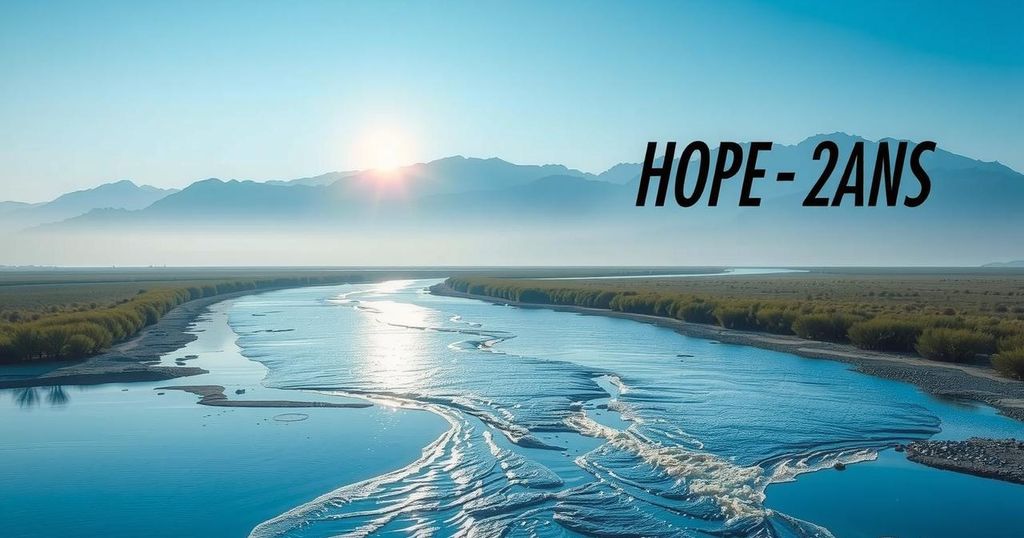M23 Rebel Group Announces Unilateral Ceasefire in DRC Amid Ongoing Conflict

The M23 rebel group has declared a unilateral ceasefire in the DRC for humanitarian reasons amid ongoing conflict. The ceasefire, starting Tuesday, follows significant casualties in Goma. The group stated its intention to protect civilian interests while denying plans to capture Bukavu. Regional leaders are set to meet for discussions on the conflict, emphasizing the importance of humanitarian aid and previous peace agreements.
The M23 rebel group, which has been supported by Rwanda, announced a unilateral ceasefire in the Democratic Republic of Congo (DRC) to commence on Tuesday. This decision was made in light of humanitarian concerns, as there is an urgent need for safe passage for aid and assistance to hundreds of thousands of displaced individuals. The ceasefire announcement followed recent fighting in Goma, where the UN reported over 900 casualties.
Following the recent clashes, the M23 rebels, having taken control of Goma, indicated they do not aim to capture Bukavu, despite their prior intentions to march towards Kinshasa. Spokesman Lawrence Kanyuka affirmed their commitment to safeguarding civilian lives while maintaining their current positions in the region. The DRC government has not issued an immediate response to the ceasefire declaration.
The ceasefire follows an upcoming joint summit involving leaders from southern and eastern Africa, organized to address the ongoing conflict. Kenya’s President William Ruto noted that both the presidents of DRC and Rwanda will participate. Similarly, the G7 foreign ministers have urged the involved parties to re-engage in negotiations and facilitate humanitarian access for civilians in the conflict.
Authorities from the DRC have expressed their willingness to enter discussions aimed at resolving the conflict, emphasizing the need for adherence to prior peace agreements. In contrast, both Rwanda and the M23 rebels have accused the DRC government of failing to honor earlier accords. M23 continues to assert its significant military presence, reportedly bolstered by approximately 4,000 Rwandan troops, far exceeding their numbers during a previous incursion in 2012.
The recent hostilities have led to extensive displacement, with many individuals fleeing into Rwanda, carrying only their remaining possessions. This ongoing conflict, rooted in a long-standing ethnic struggle, sees the M23 identifying itself as a defender of ethnic Tutsis in the DRC, while Rwanda accuses the Hutu factions of ongoing persecution against Tutsis, tracing back to the 1994 Rwandan genocide.
In conclusion, the declared ceasefire by the M23 rebels introduces a critical opportunity for humanitarian relief and potential negotiations. However, the complexities of the ethnic tensions and historical grievances must be addressed to ensure lasting peace in the region, highlighting the importance of cooperation between local and international entities in facilitating dialogue and aid delivery.
The situation in the Democratic Republic of Congo is marked by a prolonged struggle for power and control among various armed groups, notably the M23 rebels. These groups have found support from neighboring countries, leading to complex geopolitical dynamics. The ongoing conflict also highlights ethnic tensions rooted in the aftermath of the Rwandan genocide, influencing both local and regional security and stability efforts.
The M23 rebels’ unilateral ceasefire presents an essential moment for addressing humanitarian needs and potentially rekindling negotiations. However, the underlying ethnic tensions and historical conflicts necessitate careful mediation and commitment from all parties involved to establish a sustainable peace framework in the DRC and its surrounding regions.
Original Source: www.theguardian.com








